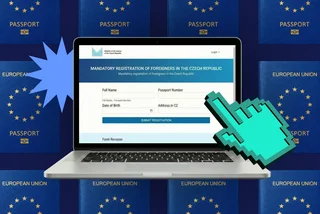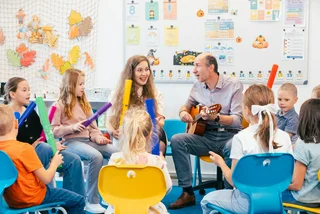They are entrepreneurs, members of the diplomatic corps, NGO leaders, actors, novelists, and the current President of the US—and they roam the halls of Prague’s international schools. “Third-culture kids” (TCKs), or “cross-cultural kids” (CCKs), are at ease in multiple languages, appreciate diversity, have a broad worldview, and can seemingly transition from culture to culture with ease. But a new documentary Where Is Home?, reveals the challenges these global nomads face as adults: namely, an inability to answer the question the film raises.
It’s enough to make first-culture parents who’ve toted their kids and their careers top the Czech Republic more than a little nervous. Is there anything you can do now to prepare your TCK to thrive as an adult later?
We asked several experts for their advice on creating and maintaining a strong sense of home—and ultimately raising a better-adjusted person. (The key seems to be a combination of parental creativity and consistency, particularly when it comes to academics.) Here’s how to help your TCK feel at home around the globe:
Don’t push the primacy of the passport culture. Trying to unpack notions of identity and home will be a lifelong task for TCKs—and their parents. While you may have grown up in one culture, your TCK’s sense of home is likely to be far less straightforward than yours. David Pollock and Ruth Van Reken suggest in their book The Third Culture Kid Experience – Growing Up Among Worlds that parents encourage children to understand that they do not have to identify solely with the passport culture, and that identity can be made up of many layers of experience. Help your child come up with an answer to the “Where is home?” question that really fits her personality.
Anticipate and prepare for transitions. Changing schools and moving within one country is enough to challenge any child; TCKs do this in multiple countries and, often, more than once during their childhood. No wonder they may still be grappling with the effects, years down the road. But if parents can help them anticipate and prepare for the transition, and keep things as normal as possible before, during, and after the move, chances are the long-lasting rewards—personal growth, language acquisition, friends around the world, interpersonal skills, an ability to roll with the punches—work to offset the difficulties. (“According to My Passport I’m Going Home”, Kay Branaman Eakin, 1998).
Don’t let grief go unresolved. Says David Pollock: “[TCKs] are always leaving or being left. Relationships are short-lived. At the end of each school year, a certain number of the student body leaves, not just for the summer, but for good.” Help your child avoid creating conflict with friends (in a desperate attempt to make losing a them less painful) by equipping him with the necessary skills for creating closure. Pollock suggests that parents, “Build a RAFT: Reconcile conflicts with others; Affirm the relationships you have had; say Farewell to people, places, pets and possessions; and Think ahead by gathering information about your new host countries.” Still, give yourself and your kids permission and time to grieve, Van Reken adds, and offer plenty of comfort.
Preserve community across time zones. Barbara F. Schaetti, Principal Consultant of Transition Dynamics, a consulting firm serving expats, emphasizes how important it is for a family to preserve a sense of continuity across time zones. Before arriving in a new place, she recommends, researching activities that you enjoy as a whole family, and, together, planning an outing that helps you get involved immediately upon arrival. Love biking as a family? Investigate bike rentals in your new city, and plan to pedal around the historic sights on one of your first weekends there. Invent traditions and welcome rituals—maybe a special first lunch or dinner in your new place, or a walk past (or even through, if the campus is open) the new school—that you can use for every move.
Maintain a family retreat to which you routinely return. Having one such location—be it a grandparents’ home, a summer cottage, a beloved holiday retreat—in Schaetti’s opinion is a “touchstone,” a major constant, against which your TCKs can “measure his growth and development.” It doesn’t need to be in the passport country—just somewhere the entire family enjoys. Along the same lines, make sure to preserve relationships with your extended family, whether via visits, letters, postcards, or Skype. This is another way to build consistency in your TCK’s world.
It may give parents of third culture children some relief to know that, in a past study of American TCKs, 80 percent finished their bachelor’s degree and 40 percent went on to post-graduate work—a much higher percentage than in the population at large. Adds Ruth Van Reken, “Most TCKs learn to live comfortably in this world, whether they stop to define it or not.”
How do you help your children answer the question “Where is home?” Share your stories here.












 Reading time: 4 minutes
Reading time: 4 minutes 



 English
(Proficient)
English
(Proficient)



















